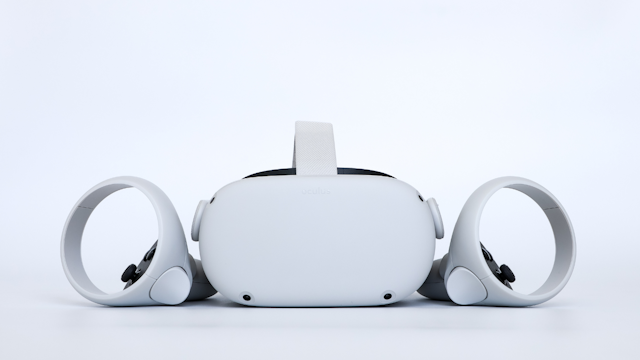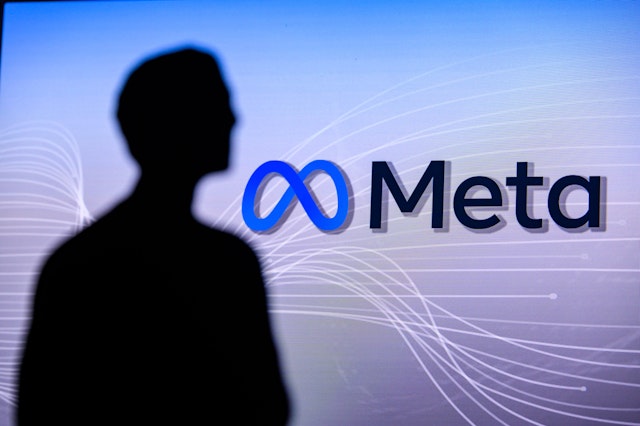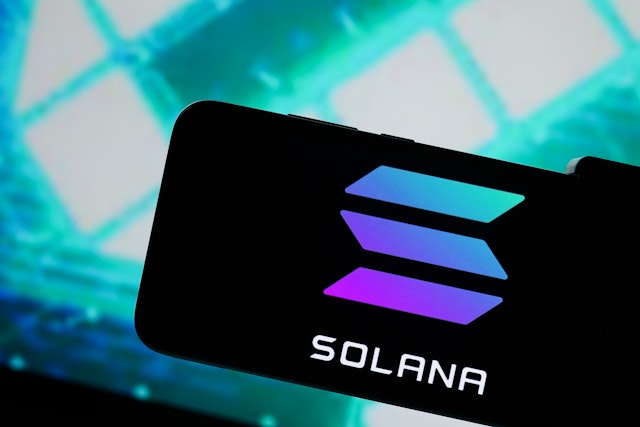Things are moving fast in the metaverse, and in the wider world of Web3 as a whole. Depending on who you ask, this futuristic, blockchain-based space is either the next big thing for marketing — and for almost everything else — or an overhyped fad. Here’s what you need to know from this past week:
The MTV Music Video Awards (VMAs) announced a new category earlier this week for its upcoming 2022 awards show: “Best Metaverse Performance.” MTV has clearly been keeping an eye on musical developments in the metaverse; in recent years, driven in part by travel and socializing restrictions imposed during the pandemic, a number of top-tier artists have performed virtual concerts in platforms like Roblox and The Sandbox. The nominees for this year’s “Best Metaverse Performance” are reportedly Ariana Grande, BTS, BLACKPINK, Twenty One Pilots, Justin Bieber and Charli XCX.
Meta teams up with Keke Palmer for new social media series
Meta debuted a new series on its Facebook and Instagram pages earlier this week designed to teach viewers about the metaverse. The series, called “Are we there yet?,” is hosted by actress Keke Palmer, who also co-stars alongside Daniel Kaluuya in Jordan Peele’s new film “Nope.” (Meta also recently released a new Horizon Worlds virtual reality (VR) experience based on “Nope” called “Nope World.”) In a trailer for Meta’s new series, Palmer travels through a semi-psychedelic, sci-fi wonderscape in a convertible equipped with rocket boosters, alongside experts who answer “all your burning questions about the metaverse.” One shot suggests that the series will be focused on the period between the “metaverse present” and the “metaverse future,” covering roughly the next ten years. The debut episode featured Vishal Shah, who bears the grandiose professional title of vice president of the metaverse at Meta.
The latest marketing news and insights straight to your inbox.
Get the best of The Drum by choosing from a series of great email briefings, whether that’s daily news, weekly recaps or deep dives into media or creativity.

The metaverse is evolving by the day. (Credit: Adobe Stock)
“We Met in Virtual Reality” premieres on HBO
On Wednesday, HBO began streaming “We Met in Virtual Reality,” a new documentary filmed entirely in VR Chat, a popular platform in which users interact as virtual avatars. Filmed during the COVID-19 pandemic — when many were turning to VR as a means of connecting with others during the loneliness of lockdown — the documentary is centered upon a small cast of characters, including individuals working to build community and careers on the platform and couples who are getting to know one another virtually before meeting IRL. “’We Met in Virtual Reality’ tenderly documents the stories of people experiencing love, loss and unexpected connection, expressing vulnerability around mental health struggles and questions about identity, offering a hyper real journey into the human experience of an online world that may soon shape the future,” HBO says on its website. The film currently has a score of 95% on Rotten Tomatoes.
Netflix teams up with Media.Monks for “The Gray Man Metaverse Mission”
“The Gray Man,” a new spy thriller from Netflix starring Ryan Gosling, Chris Evans, and Ana de Armas, is bringing its explosive energy to the metaverse. “In an effort to reach a new audience of gamers and adrenaline junkies,” Netflix has partnered with Media.Monks and Decentraland to launch “The Gray Man Metaverse Mission,” a new virtual experience inspired by the film. Players are challenged to navigate a virtual maze — a recreation (spoiler alert) of the setting from the film’s climactic final scene — to recover a USB, like the one that’s brutally fought over by the characters in the film. Players will also have the chance to win one of a series of NFTs inspired by the film. This also, notably, marks Netflix’s first-ever NFT drop.
Meta’s VR spending spree continues

Meta’s latest earnings report, released yesterday, showed that Reality Labs — the company’s VR division — lost around $2.8bn in the second quarter of 2022. This follows similar losses for the division in Q1 (more than $2.9bn). Meta has also announced that the price of its Meta Quest 2 VR headset would increase by $100, from $299 to $399, starting Aug. 1; the cost of some other Meta products are also slated to increase. In the latest earnings report, Meta’s Chief financial officer stated that the company “[anticipates] third quarter Reality Labs revenue to be lower than second quarter revenue.” Though the spending at Reality Lab is significant, it’s nothing that Meta can’t absorb: the company’s operating income for Q2 was just under $8.36bn. And the news of the losses, though it probably stings the ears of some investors listening in on conference calls, probably doesn’t come as much of a surprise to executives at Meta, who have predicted that their vision for the metaverse could take more than a decade to bring to fruition. For the time being, Meta seems content to be investing huge amounts of capital int its VR division, with the expectation that the long-term ROI will eventually pay off.
Meta braces employees for ‘competition’ with Apple

Speaking of Meta’s vision for the metaverse: Mark Zuckerberg, the company’s Chief executive officer, reportedly told employees earlier this month that Meta is locked in “a competition of philosophies” with Apple. In a transcript of an internal company meeting published earlier this week by The Verge, Zuckerberg said that Meta would aim to establish itself as a more affordable alternative to Apple — which, though it has yet to emerge as a direct competitor in the race to build the metaverse, is expected to release its first-ever augmented reality (AR) headset very soon, maybe even before the end of 2022.
Zuckerberg has been a promoter of the concept of interoperability within the metaverse since his company rebranded itself to Meta in late 2021. In that spirit, Meta recently helped to launch the Metaverse Open Standards Group, along with a number of other industry leaders like Epic Games and Microsoft. The Group is aimed, in part, towards fostering an interoperable metaverse. In the recent Meta employee meeting, Zuckerberg pointed out that Apple is conspicuously absent from the Group’s membership. “But I don’t think that’s a surprise,” Zuck said in the transcript. “Apple, for a few generations of computing now, has been the closed provider of computing.”
While the metaverse strategies of major tech companies like Meta and Apple continue to make headlines, it’s important to bear in mind: There’s a much broader, non-corporate community of developers and digital artists out there that has different hopes for the future of Web3. True, those hopes overlap in some respects with those of Meta (many smaller companies, for example, are also pushing for interoperability), but in many other respects there’s considerable contrast. As Amanda Cassatt, Chief executive officer of Serotonin (a Web3 professional services company) recently told The Drum: “The metaverse has the potential to become a utopia: a playground for boundless creation, unlimited by the laws of physics or the constraints of supply chains. But it could also become a dystopia, if the Web2 business models that Jaron Lanier termed BUMMERs (Behavior of Users Modified, and Made into an Empire for Rent) prevail. I think Web3 has a fighting chance to become the underlying rails of the metaverse. In the Web3 space, incumbents don’t always win, but some can, if and when they evolve their approach. A comparison: Years ago those who thought users would massively care about personal data privacy were laughed out of the room. Today this preference is strong enough to affect revenues of major companies. Web3 is here to stay in the metaverse. If you talk to Web3 folks about the metaverse, they hardly mention Meta or Apple.”
Solana Foundation sets up an IRL shop in Manhattan

Solana Foundation, the non-profit behind the Solana blockchain network (SOL), has opened a brick-and-mortar store in New York City. “Solana Spaces,” located in Manhattan’s Hudson Yards, blends retail with education; the store was described by the company in a July 15 tweet as “everyone’s first crypto friend,” a space where visitors can “learn how Solana works, [and] what Web3 is.” According to the tweet, store employees will also “set you up with a wallet and your first NFTs, and guide you through your first on-chain transactions.” The move from Solana to open a physical store follows a broader trend among many Web3 companies to bring their services into mainstream consciousness. Many crypto exchange companies have set out to achieve this goal through partnerships with celebrities and sports brands. The Bored Ape Yacht Club also recently opened a restaurant, called “Bored & Hungry,” in Long Beach, California.
For more, sign up for The Drum’s Inside the Metaverse weekly newsletter here.
The Drum has launched The Drum Awards for the Metaverse to recognize those leading in this new frontier. These will celebrate the very best creativity, innovation, people and performance for metaverse, web3 and NFT activations, with expert judges from Journey, Meta and R/GA. Entries are open now, with the first deadline closing on November 17.

